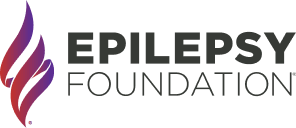Breastfeeding and Seizure Medication
Breastfeeding
Breastfeeding a newborn baby has many advantages, including improving the baby's health (important antibodies are present in breastmilk that are good for the baby!). Breastfeeding also helps the mother and baby bond during the early months. In addition, for many women, breastfeeding is an integral and important part of the experience of motherhood.
Given these considerations, the American Academy of Neurology and the American Academy of Pediatrics advise that women with epilepsy taking AEDs or seizure medications can breastfeed.
- During breastfeeding the baby will continue to be exposed to the seizure medication in varying concentrations depending on the prescribed AED. Usually this is only a small amount.
- However, the amount of medication present in breastmilk is less than the amount the baby was exposed to during pregnancy.
- Larger scale studies are needed to better understand drug transfer in breast milk and metabolism in infants for all AEDs.
- Two large studies have found no side effects of breastfeeding an infant while taking seizure medications, when the children were later tested at 3 years of age. One of these studies followed children to age 6. The study found that these children actually had higher IQ than children of women with epilepsy who were not breastfed.
- If mothers receiving ethosuximide, phenobarbital, primidone, diazepam, lorazepam, or lamotrigine choose to breastfeed, they should exercise caution and closely monitor the infant for their level of alertness, sleepiness, not gaining weight, or other developmental changes or problems.
Tips to lessen the amount of medication that reaches the baby:
- If you take your seizure medicine just once a day, try to take it at the beginning of the baby's longest sleep interval, usually right after the bedtime feeding.
- If you need to take your seizure medicine more than once a day, breast-feed the baby immediately before you take a dose. That's when the level is likely to be lowest.
- Supplement breastfeeding with formula at some feedings. Doing this at night may help the mother get good sleep while someone else feeds the baby!
References:
NEAD Study Group. Effects of breastfeeding in children of women taking antiepileptic drugs.
Early child development and exposure to antiepileptic drugs prenatally and through breastfeeding.
Meador KJ, Baker GA, Browning N et al. NEAD Study Group. Breastfeeding in children of women on antiepileptic drugs: Cognitive outcomes at age 6 years. JAMA Pediatrics 2014 (in press)
Resources
Epilepsy Centers
Epilepsy centers provide you with a team of specialists to help you diagnose your epilepsy and explore treatment options.
Epilepsy Medication
Find in-depth information on anti-seizure medications so you know what to ask your doctor.
Epilepsy and Seizures 24/7 Helpline
Call our Epilepsy and Seizures 24/7 Helpline and talk with an epilepsy information specialist or submit a question online.
Tools & Resources
Get information, tips, and more to help you manage your epilepsy.


